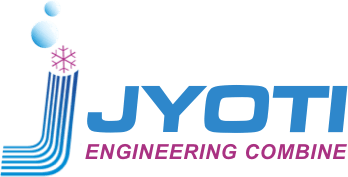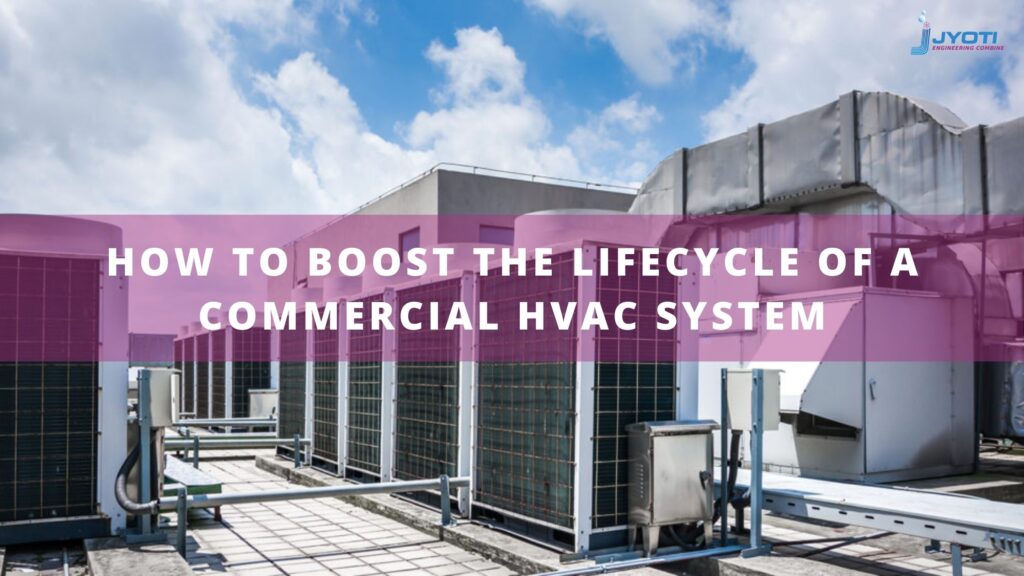Today there are many commercial enterprises that lack adequate ducting. This makes air circulation more difficult, putting additional strain on other components of the HVAC system. Depending on the surroundings, it might make life difficult for employees or occupants in the area, resulting to difficulties such as Sick Building Syndrome.
However, almost every other component of your business HVAC system may be replaced as and when required. Although we are talking about a whole system it would not necessarily be accurate to question what will be the life of the whole commercial HVAC system.
Rather, using a micro approach is more effective here. You should be looking to extend the life of all of your system’s components for as long as feasible, making controlled replacements only when absolutely necessary. The “whole system” will survive the life of the building, regardless of the elements change.
However, you may estimate the average service life of those particular components.
They are, based on our experience and study, as follows:
- HVAC for commercial Compressor: 8-10 years or more, with diminishing efficiency after the fifth year
- Water-cooled chillers have a lifespan of 20-30 years, whereas air-cooled chillers have a lifespan of 15-20 years.
- 20 years for the condenser
- 5-10 years for a thermostat; smart thermostats require sensor replacement every 2-3 years.
- Heat exchangers: 15-25 years with contemporary materials; 30 years or more with cast iron
- 15-20 years for a commercial air handler
- Many places online would answer “what is the lifetime of a commercial HVAC system?” with 15-20 years. As mentioned above, this is not the case always. During that period, you may have had certain important components that you never changed, but you will most likely require two compressors – the “heart” of the system. Your business HVAC system will not fail even after 20 years.
This therefore raises the query, “How can you prolong the lifecycle of a commercial HVAC system?”
That is a more relevant topic, and it provides you a lot more benefit. You can extend the life of practically any component in your HVAC system by taking the proper steps to optimise it. That is also true of the compressor. It is not unheard of for a well-maintained commercial compressor to survive 12 years, but you should always be prepared to replace it when you reach the latter third of its lifecycle.
Three Tips for boosting the Life of Your Commercial HVAC System
Maintaining the below three principles will result in more dependable and efficient HVAC performance, especially as the average age of system components increases:
1. Carry out routine maintenance
Each component of your HVAC system has its own maintenance, which may be divided into weekly, monthly, quarterly, and annual requirements. Some components are simple, while others are complicated, but the overall trend is toward greater serviceability.
Maintain a documented maintenance plan and ensure that every interaction with each HVAC component is documented, particularly when repairs or compressor part replacements are performed. General observations, such as complaints regarding HVAC performance or airflow in a specific location, can also aid in the identification of problems.
2. Ensure the ducts are cleaned on regular basis
Many organisations may not have the funds to completely redesign a building’s duct system. Even if the resources are available, it may be viewed as an undesirable impediment to day-to-day operations. The older and thinner your ducts are, the more important it is to pay care to them.
This includes ensuring that all of your HVAC air filters are cleaned or replaced on a regular basis. Typically, this will be every three months, but keep an eye on airflow in your facility and the condition of your air filters to determine if a shorter timetable makes sense. If ducts get blocked, try to isolate and treat the problem as soon as possible.
3. Pay special attention on Your Commercial Compressor
The compressor is perhaps the component least likely to fail unexpectedly, but when it does, it is likely to influence every downstream component of the system. So it is important to focus on your commercial compressor to ensure the life span of the entire HVAC system.
By having a backup plan and keeping a remanufactured commercial compressor on hand for emergency replacements, you may avoid a huge inconvenience of shutting down your system. A remanufactured commercial compressor provides the same performance and environmental benefits as new units at a fraction of the cost.


